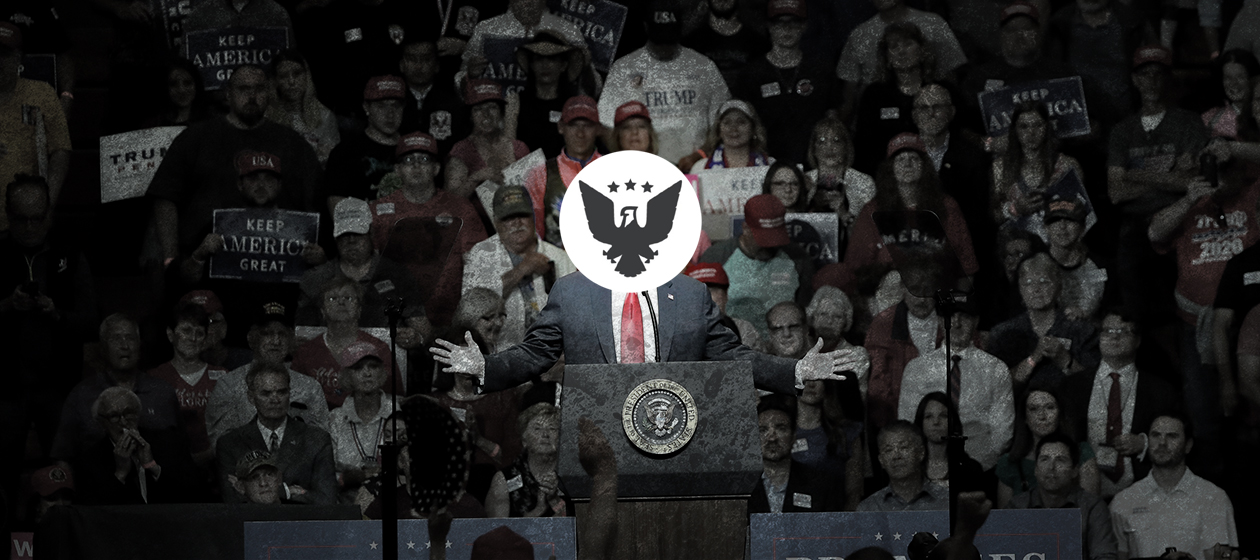The irredeemable irresponsibility of The Federalist
On the ludicrous sycophancy of Trump's media toadies


Some day, when the Trump administration is over and the true extent of its corruption has become part of the public record, the right-wing website The Federalist and its leading promoters and writers (especially Sean Davis and Mollie Hemingway) will receive proper recognition for the significant and distinctive contribution they made to polluting the waters of American public life.
Along with Sean Hannity's prime time show on Fox News, the House Intelligence Committee under Devin Nunes, and the president's own lie-filled Twitter feed, The Federalist is a leading disseminator of pro-Trump conspiracies and up-is-down, funhouse-mirror distortions of Special Counsel Robert Mueller's investigation into Russian election meddling and potential Trump involvement.
One might presume the real story about that investigation (so far) is its astonishing scope, touching on political contacts and financial transactions conducted around the world, and the large numbers of indictments and guilty pleas the special counsel has already managed to secure after a mere 12 months on the job. (The comparatively microscopic Whitewater investigation dragged on for the bulk of Bill Clinton's two terms in office.)
The Week
Escape your echo chamber. Get the facts behind the news, plus analysis from multiple perspectives.

Sign up for The Week's Free Newsletters
From our morning news briefing to a weekly Good News Newsletter, get the best of The Week delivered directly to your inbox.
From our morning news briefing to a weekly Good News Newsletter, get the best of The Week delivered directly to your inbox.
Yet nearly every day The Federalist is there to make the point to its readers in conspiratorial detail that actually the true scandal is that Mueller's investigation originated in an FBI investigation that, in turn, originated with an entirely fictional dossier compiled by a ferocious anti-Trump partisan named Christopher Steele who was paid by the Hillary Clinton campaign through a stridently Democratic opposition research firm called Fusion GPS.
Message: The investigation of Trump was pure politics from the beginning, and it's never ceased being pure politics. (Never mind that the investigation of figures in and around the Trump campaign was based on more than the raw intelligence contained within the Steele dossier, or that the inaccuracy of that intelligence has yet to be demonstrated.) Barack Obama and Hillary Clinton hated Donald Trump and were willing and eager to do anything and everything in their power to bring down his campaign (and later, his incoming presidential administration), including the deployment of the enormous power of federal law enforcement against him, his family, and his staff. These political dirty tricks on the part of the Democrats and their enablers in the federal bureaucracy, and not collusion with Russia, blatant financial corruption, or other misdeeds on the part of the president and his entourage, are the real scandal confronting the American people.
The latest example of this inverted political reality occurred this week, in The Federalist's coverage of the long article published Wednesday in The New York Times about how the FBI concealed its early investigation of four affiliates of the Trump campaign (Michael Flynn, Paul Manafort, Carter Page, and George Papadopoulos) while being far more publicly transparent about its investigation of Hillary Clinton's email server practices during her time as secretary of state.
To most people reading this story, its point was plain: The FBI behaved in a way that was deeply unfair to the Clinton camp, which had to contend with a constant stream of stories about the email investigation, including it being briefly reopened (and then closed again) less than two weeks before Election Day. The Trump campaign, by contrast, not only faced no such bad press but even enjoyed a (now notorious, because false) front-page Times story in late October 2016 that actively denied it was under investigation at all.
A free daily email with the biggest news stories of the day – and the best features from TheWeek.com
It's hard to conclude anything other than that the FBI made things much harder for the Clinton campaign while simultaneously protecting the Trump campaign (out of a fear that the implications of the Trump-campaign investigation were so grave that publicizing them before the election could fatally damage it).
But for The Federalist, this isn't the takeaway from the Times story at all. On the contrary, what's significant about the story, according to Federalist co-founder Sean Davis, is that it confirms that "the Obama admin was actively spying on four affiliates of a rival political campaign weeks before an election." Mollie Hemingway likewise insists that it's a "stunning admission for those Americans worried that federal law enforcement and intelligence agencies might use their powers to surveil, leak against, and target Americans simply for their political views or affiliations."
That sounds sinister: a Democratic administration "actively spying" on (not investigating with proper judicial authorization) a "rival political campaign," not because there was any probable cause that its affiliates engaged in criminal activity, but because that administration wished to "target" that rival campaign "simply" because of "their political views of affiliations."
The fact that the investigation was prompted in the first place by the Trump campaign hiring people with long records of suspicious financial transactions and dealings with hostile foreign governments and known criminals abroad plays no part at all in The Federalist's analysis and interpretation. Neither does the presumption of political independence on the part of federal law enforcement, which The Federalist invariably treats as laughably naïve. All that matters is that an arm of a Democratic administration was investigating campaign affiliates of a Republican candidate for president. That in and of itself is sufficient to demonstrate a dangerous and malevolent abuse of power.
The point, driven home again and again on the website, is that the investigation of Trump should never have been started and certainly shouldn't have been expanded to include the appointment of a special counsel — because it was hopelessly, irredeemably tainted by partisanship from the beginning.
Does The Federalist believe it is simply impossible for any administration to fairly investigate wrongdoing and criminality on the part of members of the other party? If so, that would of course leave it entirely up to each party to police its own members, with Democrats overseeing Democrats and Republicans overseeing Republicans. In a circumstance like the one that prevailed in 2016, that would mean the Obama administration's Justice Department (including the FBI) could investigate Hillary Clinton but not Donald Trump.
If that were a serious proposal, it would create an incoherently lopsided system in which the party out of power in the executive branch could get away with all kinds of criminality without fear of investigation. But of course this isn't a serious proposal at all, and not only because there's zero chance that The Federalist would support a Republican administration turning a blind eye to evidence of wrongdoing on the part of Democrats. It's also unserious because Trump himself is currently being investigated by his own Justice Department and FBI, the leadership of which is uniformly Republican, and by a special counsel who is also a Republican.
The only principle in play at The Federalist would therefore appear to be that no one of either party should ever investigate Donald Trump.
Let me suggest an alternative way to understand the events of the past two years.
When a party nominates a thoroughly corrupt individual for president, it will trip numerous alarms in federal law enforcement, prompting investigations — whether or not the investigating agencies are currently led by political appointees of that nominee's party. During the last election cycle, both nominees were under criminal investigation, and both were being investigated by a Democratic administration, although the FBI itself was led by Republican James Comey, who was intensely concerned about the appearance of propriety and professionalism. That highly unusual and politically fraught situation led him and his underlings to make some questionable judgment calls. But at no point were they driven by the desire to railroad the Republican candidate. On the contrary, they were motivated by the desire both to appear and to be as fair-minded at possible.
It is only since the election that rabid Republican partisans in the administration, in Congress, and in the media have actively dispensed with such old-fashioned norms of public life like concerns for propriety, professionalism, and fair-mindedness — all in the effort to protect a thoroughly compromised president from having to face the legal scrutiny his personal behavior and business transactions rightly prompt.
In this respect at least, The Federalist is a website at the vanguard of a thoroughly Trumpified Republican Party.
Damon Linker is a senior correspondent at TheWeek.com. He is also a former contributing editor at The New Republic and the author of The Theocons and The Religious Test.
-
 3 smart financial habits to incorporate in 2026
3 smart financial habits to incorporate in 2026the explainer Make your money work for you, instead of the other way around
-
 ‘The surest way to shorten our lives even more is to scare us about sleep’
‘The surest way to shorten our lives even more is to scare us about sleep’Instant Opinion Opinion, comment and editorials of the day
-
 Book reviews: ‘The Score: How to Stop Playing Somebody Else’s Game’ and ‘The Sea Captain’s Wife: A True Story of Mutiny, Love, and Adventure at the Bottom of the World’
Book reviews: ‘The Score: How to Stop Playing Somebody Else’s Game’ and ‘The Sea Captain’s Wife: A True Story of Mutiny, Love, and Adventure at the Bottom of the World’Feature Comparing life to a game and a twist on the traditional masculine seafaring tale
-
 The billionaires’ wealth tax: a catastrophe for California?
The billionaires’ wealth tax: a catastrophe for California?Talking Point Peter Thiel and Larry Page preparing to change state residency
-
 Bari Weiss’ ‘60 Minutes’ scandal is about more than one report
Bari Weiss’ ‘60 Minutes’ scandal is about more than one reportIN THE SPOTLIGHT By blocking an approved segment on a controversial prison holding US deportees in El Salvador, the editor-in-chief of CBS News has become the main story
-
 Has Zohran Mamdani shown the Democrats how to win again?
Has Zohran Mamdani shown the Democrats how to win again?Today’s Big Question New York City mayoral election touted as victory for left-wing populists but moderate centrist wins elsewhere present more complex path for Democratic Party
-
 Millions turn out for anti-Trump ‘No Kings’ rallies
Millions turn out for anti-Trump ‘No Kings’ ralliesSpeed Read An estimated 7 million people participated, 2 million more than at the first ‘No Kings’ protest in June
-
 Ghislaine Maxwell: angling for a Trump pardon
Ghislaine Maxwell: angling for a Trump pardonTalking Point Convicted sex trafficker's testimony could shed new light on president's links to Jeffrey Epstein
-
 The last words and final moments of 40 presidents
The last words and final moments of 40 presidentsThe Explainer Some are eloquent quotes worthy of the holders of the highest office in the nation, and others... aren't
-
 The JFK files: the truth at last?
The JFK files: the truth at last?In The Spotlight More than 64,000 previously classified documents relating the 1963 assassination of John F. Kennedy have been released by the Trump administration
-
 'Seriously, not literally': how should the world take Donald Trump?
'Seriously, not literally': how should the world take Donald Trump?Today's big question White House rhetoric and reality look likely to become increasingly blurred
